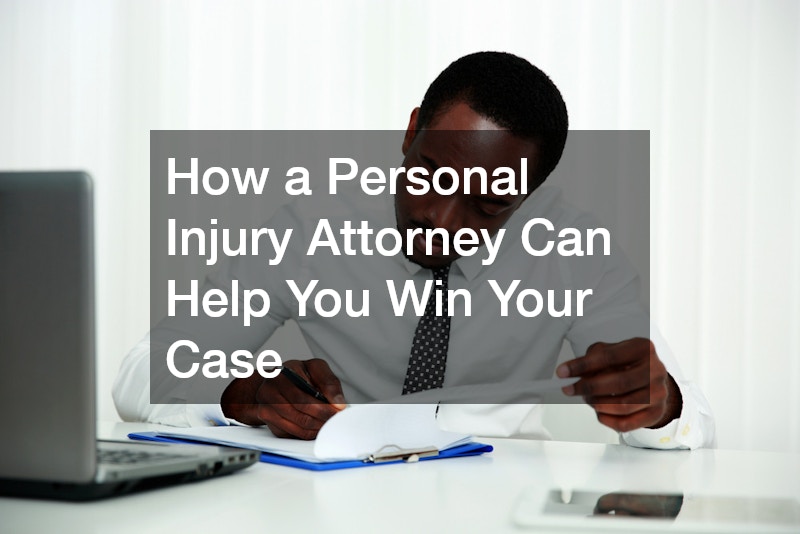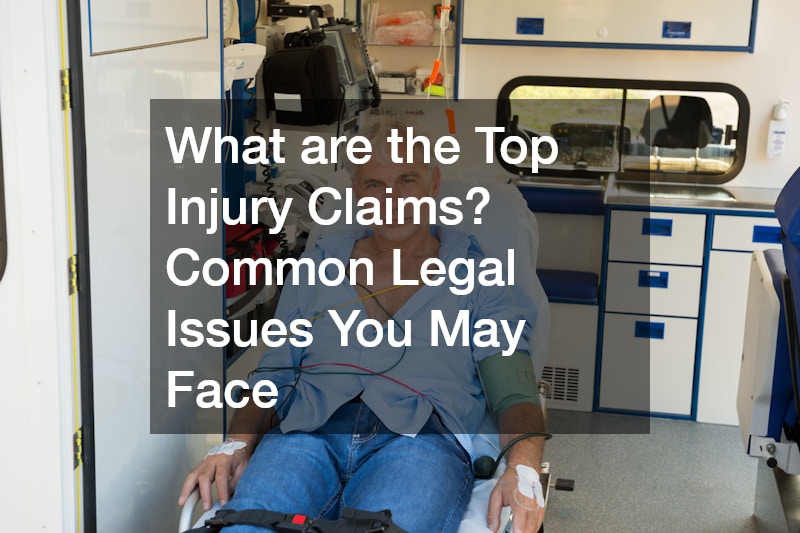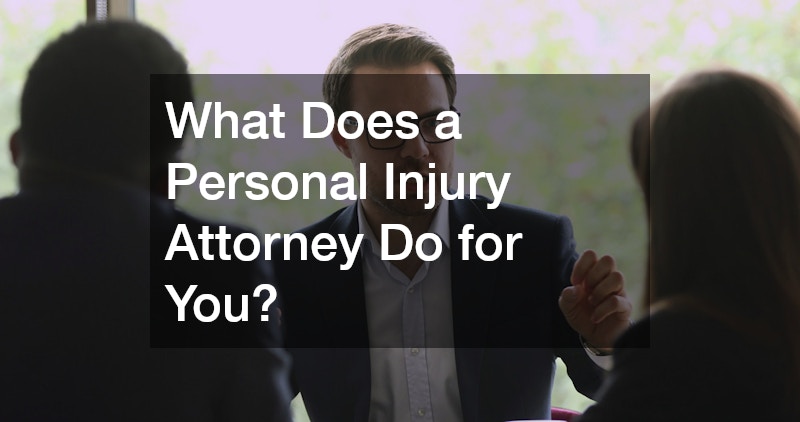If you’re a savvy business owner, you’re sure to realize that there are a host of liabilities that could risk your operations. In today’s complex legal environment, understanding liability for damages in various situations that occur in the workplace or related to employment is crucial. This long-form article explores the potential legal pitfalls that businesses and individuals may encounter, analyzing scenarios ranging from data breaches to product defects. The role of legal professionals, such as personal injury law firms and local lawyers, is critical in navigating these challenges and mitigating the risks associated with them. While many assume that legal matters can be straightforward, each case brings its own set of complexities and variations, influenced by local laws and regulations. Therefore, both employers and employees must be aware of their rights and responsibilities to protect themselves from significant legal and financial ramifications.
Our examination will cover a wide range of issues, including workplace accidents, misleading advertising, and environmental violations. Understanding liability for damages is not just about knowing who is at fault; it is also about preventing future occurrences and ensuring that working environments adhere to legal standards. Whether you are a business owner, an employee, or a consumer, being informed about these legal nuances is imperative. By consulting workplace injury lawyers, personal injury law firms, and other legal experts, individuals and organizations can ensure they are adequately protected and informed. Join us as we delve into these pressing issues, exploring the legal intricacies and potential outcomes of each scenario.
1. Data Breaches
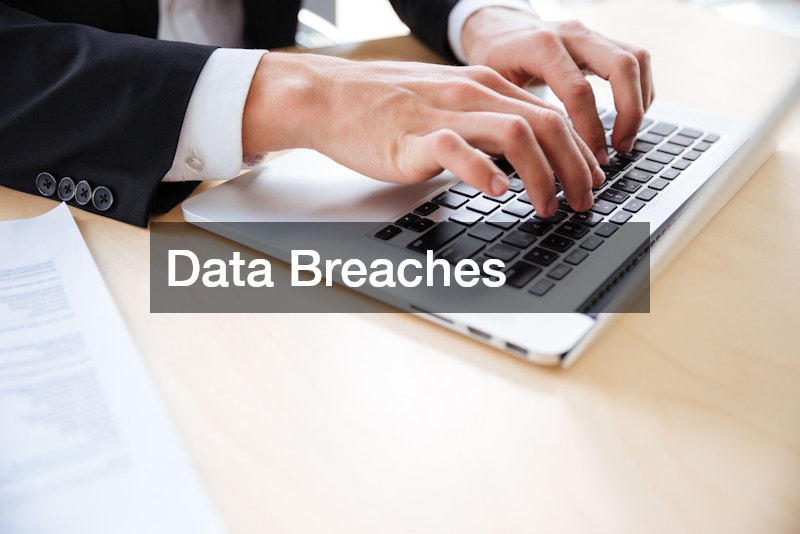
Data breaches have become increasingly common in the digital age, posing significant legal challenges for businesses and individuals alike. When sensitive information is compromised, the affected parties may seek legal recourse, often turning to their local lawyer for guidance. Understanding liability for damages in such cases is crucial, as companies may face hefty fines, reputational damage, and loss of customer trust.
The role of a local lawyer in these cases involves assessing the extent of the breach, identifying responsible parties, and advising on the best course of action. Companies need to implement robust cybersecurity measures to prevent breaches and mitigate potential liability for damages. Failure to secure data can lead to legal action, where companies might have to compensate affected individuals.
Liability for damages in data breaches often hinges on whether the company took reasonable steps to protect information. Businesses that can prove their commitment to data security may reduce their legal exposure. Conversely, negligence in safeguarding data can result in severe legal and financial consequences, with local lawyers working to navigate these complexities on behalf of their clients.
2. Drinking Alcohol on the Job
Drinking alcohol on the job is an issue that can lead to serious consequences, including accidents and injuries. When an employee who has consumed alcohol causes a car accident, a car accident lawyer may become involved to determine liability for damages. The employer can sometimes be held partially responsible, particularly if they condoned or ignored the behavior.
In these situations, liability for damages can extend to the company, especially if it failed to enforce policies prohibiting alcohol consumption at work. Employers must ensure a safe work environment by implementing strict guidelines and addressing violations promptly. Car accident lawyers often investigate these cases to identify the degree of negligence involved on both the employee’s and employer’s parts.
Legal proceedings following such incidents can be complex, with the car accident lawyer presenting evidence of negligence and resultant damages. The objective is to achieve a fair settlement for the victims, which underscores the importance of alcohol policies at work. Effective enforcement and monitoring can prevent potential liabilities and safeguard both employees and employers.
3. Product Defects
Product defects can significantly impact businesses, leading to liability for damages claims from consumers who are injured or suffer losses. Local personal injury lawyers play a crucial role in representing affected parties and pursuing compensation for injuries and financial losses. Companies, on the other hand, must defend their products and rectify defects promptly to mitigate legal risks.
When a product defect is identified, addressing it quickly is essential to reduce liability for damages. Product recalls, corrective measures, and transparent communication can help minimize legal repercussions. However, if a company is found negligent in ensuring product safety, it may face lawsuits and significant financial obligations.
Local personal injury lawyers assess these cases by examining the defect’s origin, the manufacturer’s actions, and the harm caused. Liability for damages in product defect cases can depend on various factors, including negligence and adherence to safety standards. By consulting with legal experts, affected consumers can seek redress and hold negligent parties accountable.
4. Employee Negligence
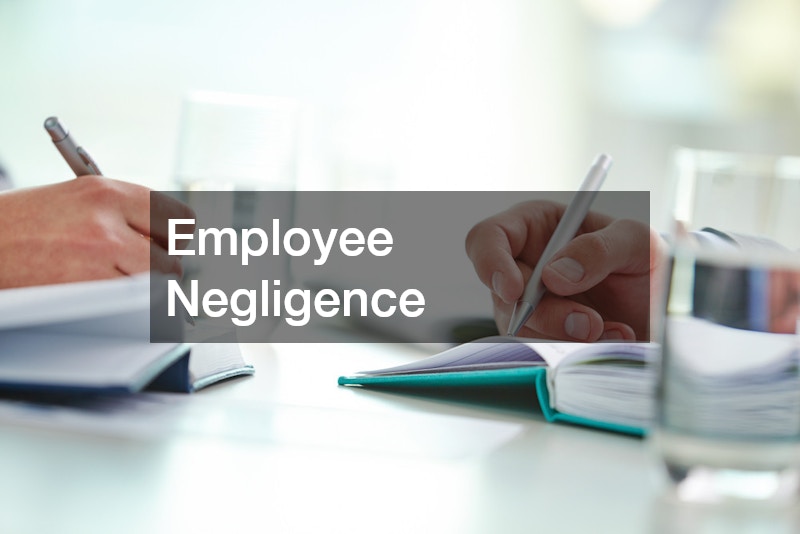
Employee negligence can lead to workplace incidents resulting in liability for damages, affecting both the business and the injured parties. When employees fail to adhere to safety protocols, accidents and injuries may occur, necessitating the expertise of workplace injury lawyers. These legal professionals assess the circumstances of each case to establish fault and pursue appropriate compensation.
Employers can face liability for damages if it is proven that they did not provide adequate training or supervision, leading to negligent behavior. Workplace injury lawyers work to demonstrate a clear connection between negligence and the incident, often resulting in compensation claims to cover medical expenses and lost wages. Preventative measures, such as regular training and monitoring, are vital to reducing such risks.
Moreover, liability for damages can extend beyond the immediate incident if the negligent behavior is part of a broader pattern. By enforcing safety protocols and ensuring employee compliance, businesses can bolster their defense in potential litigation. Workplace injury lawyers bring expertise in unraveling these complex issues, ensuring fair representation for employers and employees alike.
5. Lack of OSHA Compliance
Failing to comply with Occupational Safety and Health Administration (OSHA) regulations can expose businesses to liability for damages. These regulations are in place to ensure a safe and healthy work environment, and non-compliance can lead to serious accidents and injuries. Accident injury attorneys often become involved when workers seek compensation for injuries sustained due to OSHA violations.
When assessing liability for damages, accident injury attorneys scrutinize the employer’s adherence to OSHA standards. A lack of compliance may result in severe penalties and liabilities, emphasizing the importance of meeting regulatory requirements. Employers must prioritize regular safety audits and employee training to avoid potential legal pitfalls.
Legal proceedings in these cases can be intricate, with accident injury attorneys establishing the employer’s negligence and resultant harm. OSHA compliance is not only a legal obligation but also a critical component of workplace safety culture. By engaging in proactive safety measures, businesses can mitigate risks, protect their workforce, and minimize liabilities.
6. Workplace Accidents
Workplace accidents are a prevalent concern, leading to physical injuries and legal challenges. When accidents occur, personal injury law firms often represent affected employees in their pursuit of compensation. Determining liability for damages in these cases involves assessing workplace safety measures, employee actions, and employer responsibility.
Personal injury law firms provide expertise in navigating the complexities of workplace accident claims, often negotiating settlements to cover medical expenses, rehabilitation, and lost wages. Employers can be held accountable if it is proven they were negligent in maintaining a safe work environment. Implementing robust safety protocols is essential to preventing incidents and reducing liability for damages.
The involvement of personal injury law firms in workplace accidents underlines the importance of a proactive safety culture. By conducting regular risk assessments and addressing potential hazards, businesses can safeguard their employees and minimize legal exposure. Liability for damages can have far-reaching consequences, making accident prevention a critical focus for organizations.
7. Natural Disasters
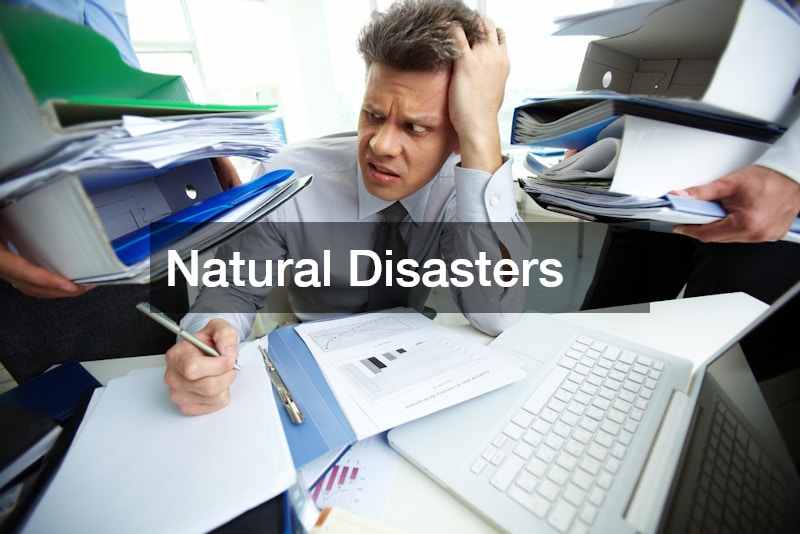
Natural disasters pose unique challenges for businesses, often leading to significant liability for damages. Personal injury law firms are frequently called upon to address claims involving injuries and losses sustained during such events. Preparing for natural disasters is essential to minimizing liabilities and protecting both employees and company assets.
Liability for damages in the context of natural disasters depends on various factors, including the severity of the event and the adequacy of the company’s preparedness plans. Businesses must implement comprehensive disaster recovery strategies to minimize potential impacts. Personal injury law firms help clients navigate claims and ensure fair compensation for any harm experienced.
Effective disaster planning involves assessing risks, conducting drills, and maintaining clear communication channels. Personal injury law firms assist in evaluating the legal implications of natural disasters, identifying opportunities for compensation and liability mitigation. By prioritizing preparedness, organizations can better respond to unforeseen events and safeguard their interests.
8. Lack of Maintenance
A lack of maintenance in workplace facilities can lead to substantial liability for damages, as neglected equipment and infrastructure pose safety risks. Employers who fail to uphold maintenance standards may face legal challenges from injured employees or visitors. Personal injury cases resulting from inadequate maintenance often necessitate legal intervention.
To minimize liability for damages, businesses should establish regular inspection and maintenance schedules for their facilities. Proactive upkeep can prevent accidents, injuries, and potential legal claims. Personal injury lawyers work to demonstrate the connection between negligence and resulting damages, seeking compensation for the injured parties.
Legal proceedings stemming from maintenance failures underscore the importance of prioritizing safety and operational efficiency. By addressing maintenance needs promptly, employers can reduce the likelihood of accidents and associated liabilities. Personal injury lawyers provide representation in these matters, advocating for fair outcomes and accountability.
9. Environmental Violations
Environmental violations can lead to severe legal repercussions for companies, including liability for damages. Businesses that fail to adhere to environmental regulations may face lawsuits and penalties from regulatory authorities and affected communities. Defense attorneys specialize in helping companies navigate these complex legal landscapes.
Liability for damages in environmental cases often hinges on proving negligence or intentional violations. Companies must ensure compliance with applicable environmental standards to avoid legal exposure and safeguard their reputation. Defense attorneys provide strategic guidance in addressing environmental claims and securing favorable outcomes.
Addressing environmental violations requires understanding regulatory frameworks and implementing effective compliance strategies. Defense attorneys work to demonstrate a company’s commitment to environmental stewardship, potentially reducing associated liabilities. By integrating sustainable practices, businesses can mitigate risks and foster positive relationships with stakeholders.
10. Misleading Advertising
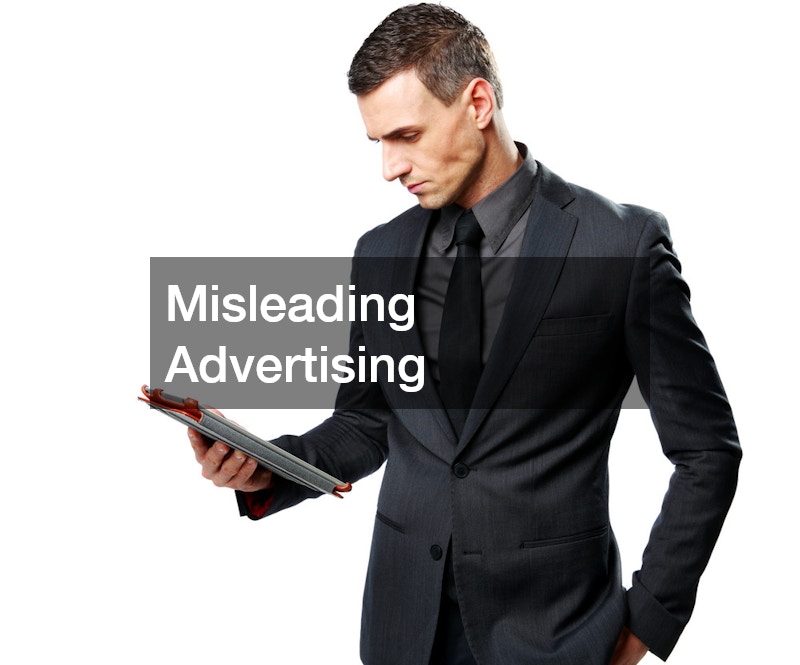
Misleading advertising can result in legal action and liability for damages, impacting companies’ reputations and financial standing. Consumers deceived by false claims may seek redress through legal channels, often with the assistance of a lawyer. Ensuring transparency and honesty in advertising is crucial to avoiding legal challenges.
In cases of misleading advertising, the liability for damages can extend to financial compensation and corrective measures. Companies must provide accurate information to prevent consumer deception and potential lawsuits. Lawyers assist in defense by examining advertising practices and rectifying claims for affected parties.
Legal proceedings involving misleading advertising highlight the importance of ethical business practices. By fostering transparency and adhering to advertising standards, businesses can maintain trust and avoid legal repercussions. Lawyers play a vital role in resolving disputes and maintaining compliance with advertising regulations.
Navigating the complexities of liability for damages in various workplace scenarios requires a comprehensive understanding of legal frameworks and regulatory standards. From data breaches to misleading advertising, businesses face numerous challenges that can impact their legal standing and financial stability. By engaging legal experts such as personal injury law firms, local lawyers, and defense attorneys, individuals and organizations can better address these issues and mitigate associated risks.
Preventive measures, such as enforcing workplace safety protocols, addressing maintenance needs, and complying with regulations, are crucial to minimizing liabilities. Ensuring transparency, ethical business practices, and robust risk management strategies can safeguard businesses against potential legal pitfalls. Proactive legal consultation and strategic planning are vital components of effective risk management, protecting both employees and companies from unintended consequences.
Understanding liability for damages in various contexts is not only about addressing immediate legal challenges but also about fostering safe, compliant, and ethical work environments. By prioritizing safety, compliance, and ethical standards, businesses can reduce liability exposure and promote a culture of responsibility and accountability. Legal professionals serve as invaluable allies in navigating these intricate landscapes, ensuring informed decision-making and successful outcomes in potential legal proceedings.

